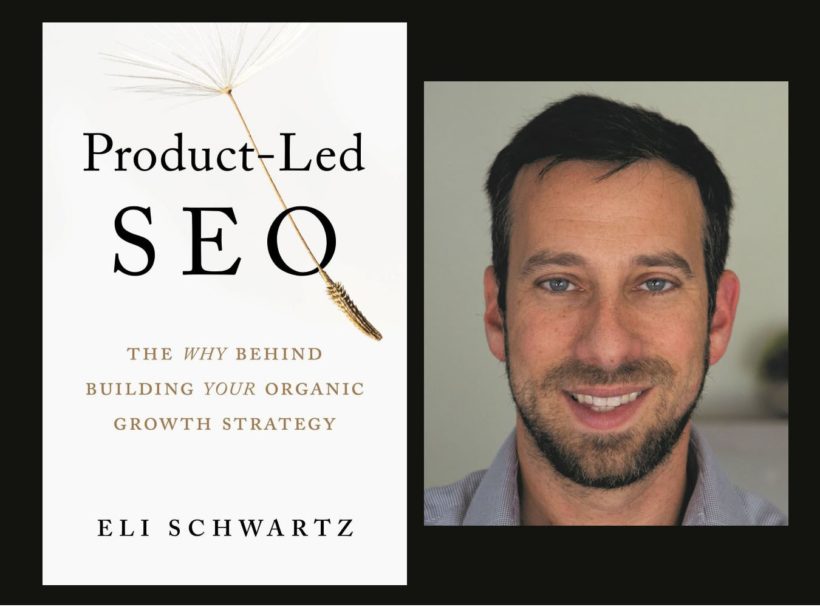
This excerpt is adapted from “Product-Led SEO” by Eli Schwartz. ©2021 and is reproduced with permission from Houndstooth Press.
In conversations about digital marketing, the words SEO and SEM get thrown around with reckless abandon. Some folks aren’t quite sure of the difference, and when the terms are used interchangeably, it can lead to misallocation of budget and resources. In other situations, the two terms are looked at as competition, leading to counterproductive marketing strategies, often within the same marketing department.
The key to a great digital marketing effort is to create a strong, united front between SEO and SEM. This starts by establishing a solid understanding of each of their strengths and weaknesses.
In an effort to get SEO and SEM on the same (productive) page, let’s take a look at the difference between the two, why it matters, and how the two can work together productively.
So, what’s the difference?
Let’s start with the basics. What is the difference between SEO and SEM?
Search Engine Optimization (or SEO) works with and analyzes free or “organic” search traffic.
Search Engine Marketing (or SEM) works with and analyzes paid search marketing.
Both have their strengths and weaknesses. For example, SEO is free; its barrier to entry is far lower than SEM; it is top of funnel; and the cost is (obviously) much lower.
On the other hand, SEM is more controlled: the message can be targeted to the intent; results are almost instant; and it is easier overall to build.
They are not competition
Some talk about paid and organic as though they are at opposite ends of the spectrum—each positioned as the other’s “competition” for resources and budget. In my opinion, this attitude is limited and counterproductive.
In my opinion, both SEM and SEO efforts should be working in concert to achieve the same goal: converting a search-engine user into a customer. The user who will click a paid listing and the user that will click an organic listing are essentially the same person. Both of these users signal their intent to a search engine via their search query. In both cases, the search engine will answer that intent with website listings.
Once the results are visible, the user can choose to click either a paid or organic result, and their choice will likely be dependent on which listing meets their specific need the most. For a branded query (a search that contains the name of a brand), the user might click a paid result merely because it was available.
Focus on core competencies
Since paid and organic searches are both going after the same user, I recommend strategizing each channel’s core competencies and having each focus on its strengths. This is not a cage match between search channels with one coming out on top to take all the marketing budget.
You need both to be successful. Therefore, you must use both strategically.
Organic can and should focus on traffic that is less competitive and a lot higher in the funnel. For example, organic search is a better fit for long-tail queries that only have a small handful of searches per month. Organic can also help in the mid-funnel for users that might not yet be ready to click the buy button. They may be willing to take an intermediary step, like joining a webinar or viewing a demo from a sales rep.
Paid should pick up the baton where organic is less targeted. Paid retargeting could follow organic users around the internet and remind them to come back and buy. Additionally, paid could dominate brand placements at a very inexpensive cost in a way that organic never could.
Solving the paid vs. organic problem
Part of why paid and organic search may appear to be opposed to each other is because they are generally housed in different organizational structures and rarely talk to each other. In order to work more effectively, I think paid and organic teams should meet frequently to discuss specific challenges. They should work more closely together.
Working together will get the teams to think about how they can solve joint problems. Organic can become aware of paid keywords that may not be converting well enough, and paid can learn about more keywords they should be targeting.
With cooperation, both teams will be more effective at reaching their goals. With more efficient spend, the paid team will have more budget to go after strategies and keywords that are currently unattainable. Similarly, the organic team can focus their efforts on converting more people who are just too expensive to chase with paid advertising.
SEM and SEO can be friends
When SEM and SEO strategies don’t work together (or, even worse, work against each other), your marketing dollars are often being wasted.
However, when SEM and SEO work in tandem to attract the right clicks and conversions, they represent an unstoppable force.
When SEM and SEO strategies don’t work together (or, even worse, work against each other), your marketing dollars are often being wasted.
With a united front, these two powerhouse entities can dominate search in a way no competitor with a disjointed marketing team could ever beat. Both teams are ultimately driving toward the same goal of increasing the acquisition of customers, focusing on different levels in the same customer-conversion process or funnel.
In other words, it’s time to forge an alliance between SEM and SEO. I promise you: you won’t regret it.
“Product-Led SEO” is available now and can be purchased below via StartupNation.com.
StartupNation exclusive discounts and savings on Dell products and accessories: Learn more here.
The post SEM vs. SEO: What’s the Difference and Why Does It Matter? appeared first on StartupNation.
via https://www.AiUpNow.com
February 1, 2022 at 12:01AM by Eli Schwartz, Khareem Sudlow
